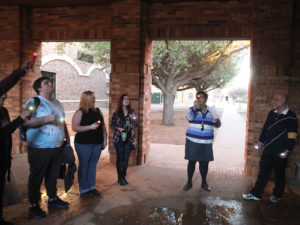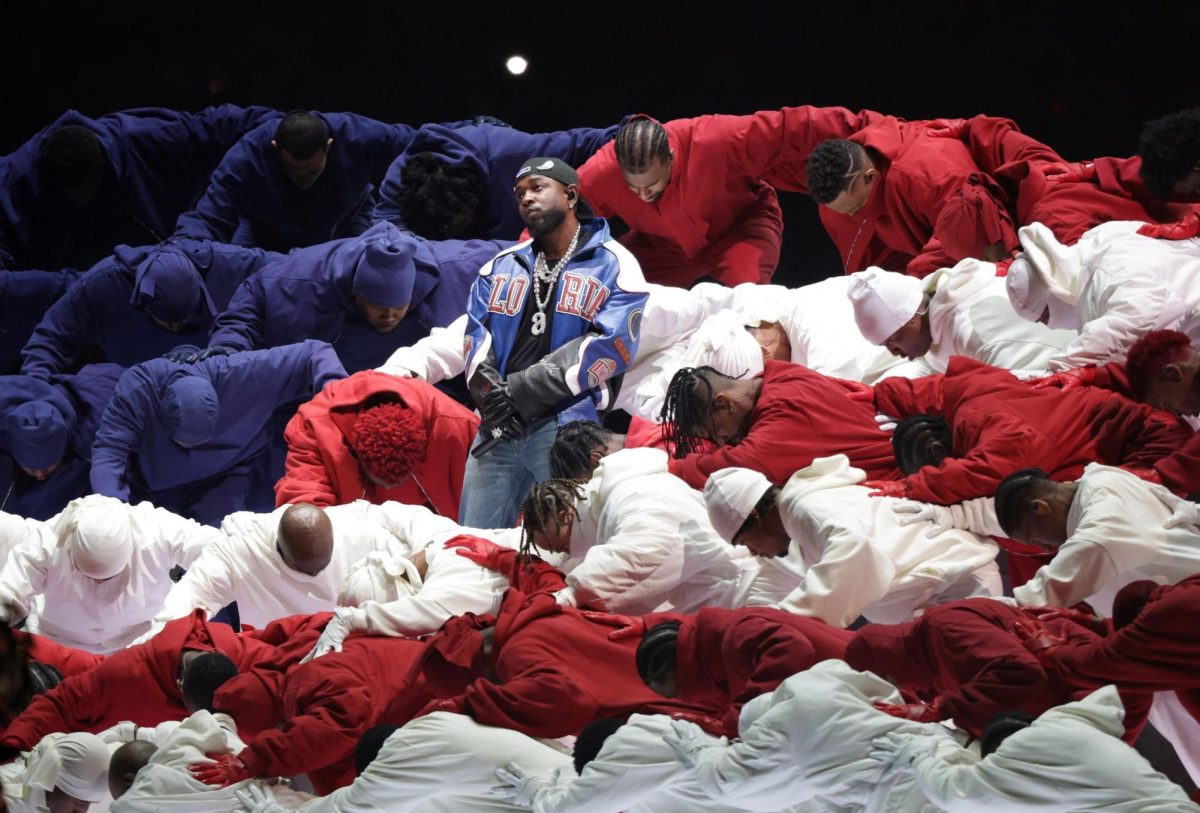
Deep in the roots of theater tradition, it has been customary for theaters to leave a single light lit in the middle of the stage after the theater has closed. Its purpose — to be a beacon to those who may enter into the vast darkness, so that they have a light to guide their path. The light has been regarded as The Ghost Light.
Students and faculty from the theater department gathered outside the Fain Fine Arts building, flashlights and cell phones in hand, preparing to take part in a brief but powerful show of unity. This fellowship, led by Elizabeth Lewandowski, chair of the theater department, took part in The Ghost Light Project on the evening of Jan. 19.
“For me, personally, this is an opportunity to stress inclusion, acknowledging and being respectful of our differences,” Lewandowski said. “This was a way to have an outward expression of that.”
Theater members across the U.S. came together at 5:30 p.m. in each timezone to shine their own Ghost Lights together in hope of representing a light for the dark times.
As 5:30 p.m. rolled around, Lewandowski began to read The Ghost Light Project’s action statement, outlining the purpose of the movement and what the Ghost Light is meant to represent both literally and figuratively. As she read aloud, Lewandowski asked the students to turn on their flashlights and cell phones. One by one, cell phone LEDs and small flashlights began to shine like the lights of ships adrift in a dense fog, until they were instructed to aim their lights upward at a single focal point, coming together to become the shining light they needed to help one another make it safely into harbor.
Their combined lights became the symbol of a safe harbor; a Ghost Light made up of the prospective feelings toward the future of each student. A visual sign of hope for their values and for any individuals who find themselves targeted because of their race, class, religion, country of origin, immigration status, disability, gender identity, sexual identity or dissident actions in the coming years.
“I think this Ghost Light really represented what theater itself is. It’s inclusion and safeguard. It just makes you feel like you’re a part of a family. They’re all accepting of you, no matter what,” Alexis Maes, general business sophomore, said.




















